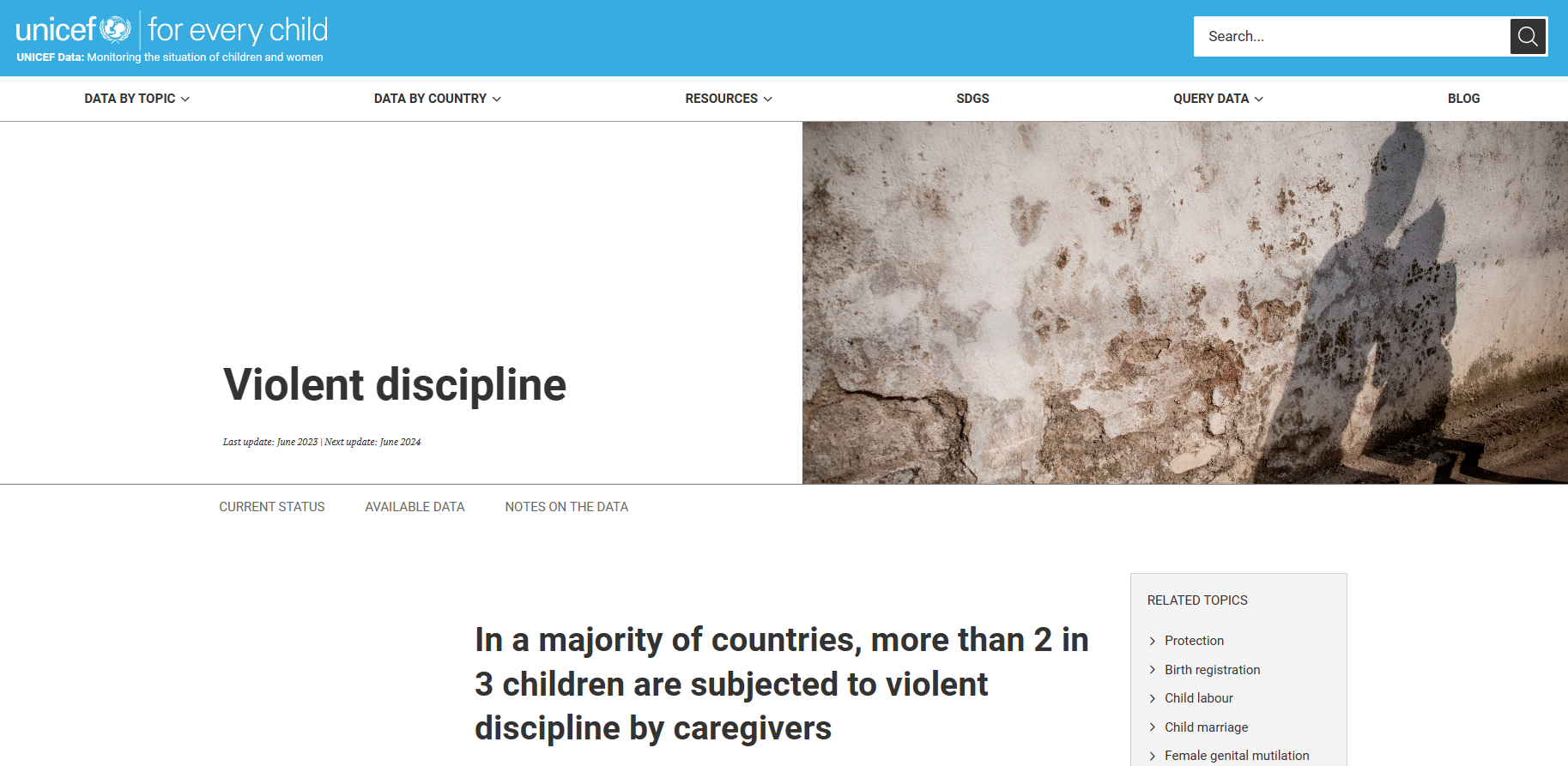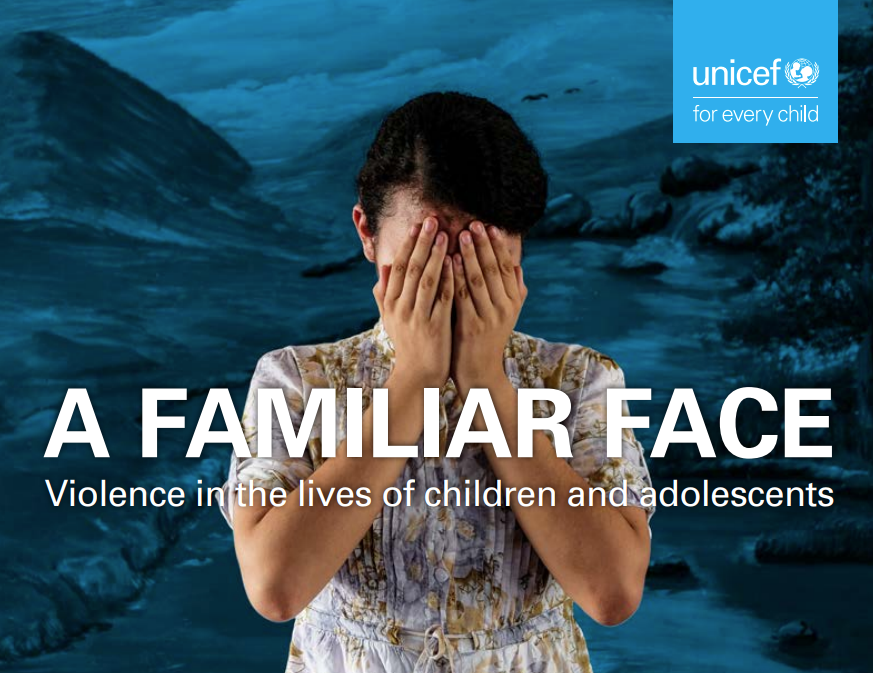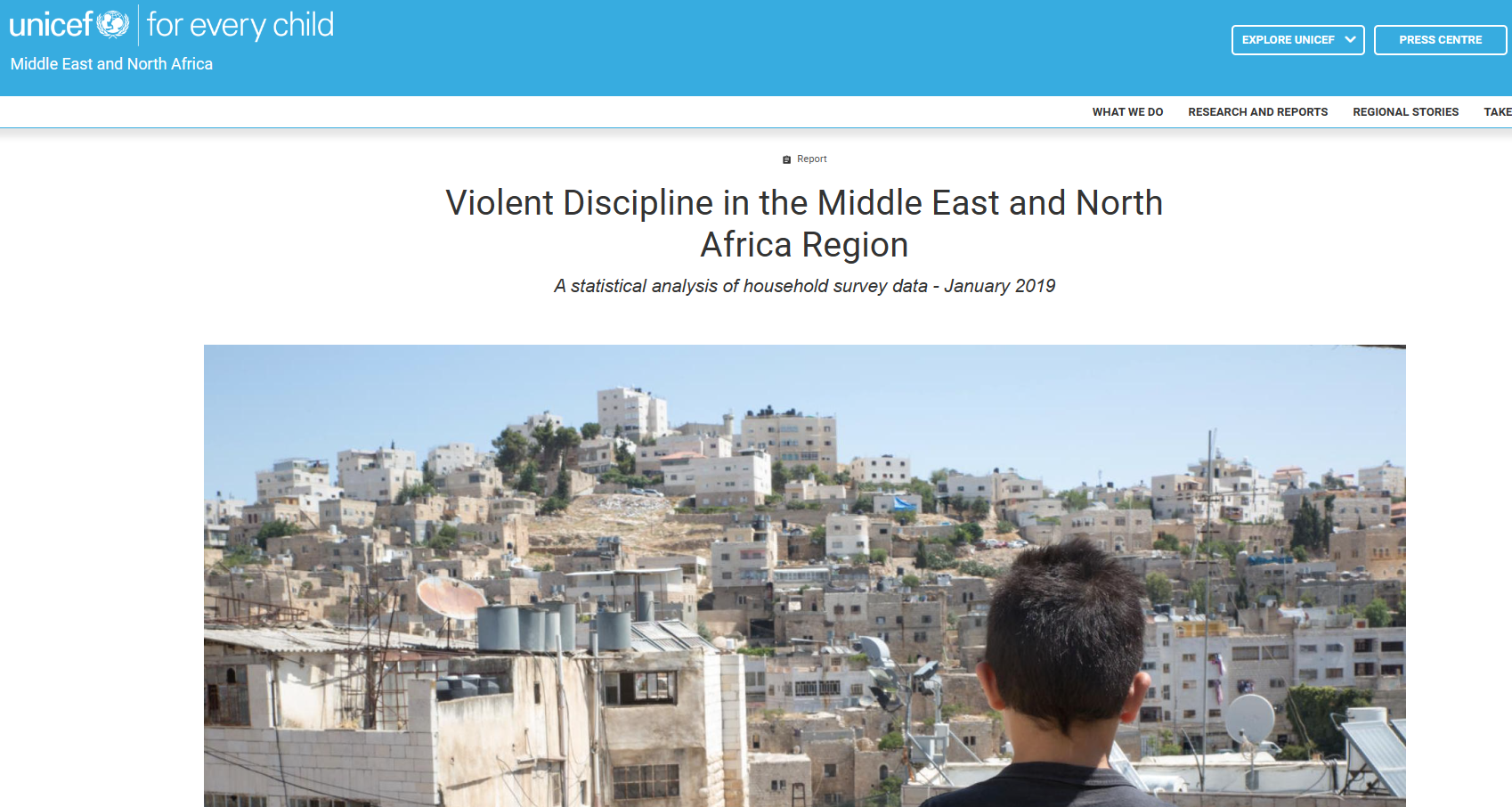UNICEF support for ending corporal punishment of children
UNICEF is committed to ending violence against children, in all its forms. This includes corporal punishment, which represents a fundamental and egregious abuse of a child’s rights.
Some of the strategies that UNICEF has adopted are summarized here:
Support for implementation of the CRC. Through its country programmes, UNICEF supports State Parties in the implementation of the Convention on the Rights of the Child, including articles 19, 28c and 37 that set out children’s right to protection from corporal punishment and other cruel or degrading forms of punishment. In line with its role as set out in article 45, UNICEF provides expert inputs to the Committee (and other relevant treaty bodies) and supports State Parties in implementation of Concluding Observations. These Concluding Observations consistently highlight enactment and implementation of laws prohibiting corporal punishment.
Custodian of SDG Indicator 16.2.1. The inclusion of indicator 16.2.1 (Proportion of children aged 1-17 years who experienced any physical punishment and/or psychological aggression by caregivers in the past month) in the Sustainable Development Goal Framework signals that ending violent discipline is a global public policy priority. UNICEF has been assigned by the UN Statistical Commission as custodian of indicator SDG 16.2.1 and is responsible for working with National Statistical Offices on the development, standardization, and global coordination of data related to this indicator.
At End Corporal Punishment we review and analyse global progress, legality, research and much more. However, we are a small team, and it is our international, national and local partners that do so much of the work translating policy into action for children.
UNICEF is a vital global partner, working in multiple ways, contexts and countries to end violent punishment of children. They have kindly provided a summary of their work and resources which we hope is helpful to others.
Data and analysis of violent discipline. Since 2005, UNICEF has supported implementation of a module on violent discipline (physical punishment/psychological aggression) in the Multi Indicator Cluster Survey and other international survey programmes. There is today internationally comparable, high-quality data from 92 countries. This dataset is subject to rich research and analysis, including thematic and regional reports.
Monitoring of laws prohibiting corporal punishment by setting. In coordination with End Corporal Punishment, UNICEF country teams monitor laws in 154 countries related to corporal punishment by setting (Home, Day Care, School, Alternative Care, Penal Institutions and Sentence for Crime). Changes to these laws are updated annually in UNICEF’s Country Strategic Indicators database.
Support to legal reform. In 2022, 103 UNICEF country offices supported programmes that aimed to address corporal punishment of children, specifically in relation to legislative and policy frameworks at national and or local level. Examples of support to recent legislative achievements include:
Zambia: UNICEF provided technical support to draft the provisions of the Children’s Code and aligning to the international and regional standards. This was followed by advocacy to the House of Parliament on the enactment of the bill into law. UNICEF also provided financial and technical support to the Government towards stakeholder’s consultative and legislative meetings on the Children’s Code Bill to garner support. UNICEF is currently supporting the Government towards rolling out the Children’s Code Act through the development of statutory instruments, procedural documents, among others to ensure implementation of the law.
Guinea: UNICEF provided technical and financial support for the revision, adoption, publication, and dissemination of the Guinean Children's Code that includes specific provisions banning corporal punishment in all settings. UNICEF has continued to advocate to the transitional Government to respect and uphold these commitments and to progress the implementation of the law. This includes partnership, for example with the Ministry of Education, to develop internal regulations, codes of conducts and teacher training to prevent violence in schools; and with justice actors to promote understanding of the new Children’s Code.
Colombia: In the lead up to the passing of the Bill prohibiting corporal punishment, UNICEF provided financial and technical support to a civil society network, the Colombian Institute for Family Welfare, and champion legislators to mobilise regional campaigns, policy briefs and national webinars aimed at legislators and public opinion. Technical inputs were provided during legislative hearings, technical briefs, and the draft Law itself. UNICEF supported the government in developing the National Strategy to implement the Law by convening consultations with all stakeholders. UNICEF developed a toolkit to facilitate the implementation of the law throughout the country, underpinned by a social-behavioral change strategy.
UNICEF programmes also aim to reduce violence disciplinary practices. Some examples of these programmes include:
Positive parenting. In 2022, UNICEF-supported parenting programmes that promote nurturing care and positive parenting reached some 12 million parents in 81 countries.
Positive discipline in schools. In a number of countries, UNICEF partnered with Ministries of Education to train school staff on positive discipline and classroom management. In Cambodia, for example, this training is being incorporated in training curriculum for all teachers.
Promoting public discourse. UNICEF is invested in initiatives which enable improved understanding of the drivers of violent behaviours, including investment in community-based initiatives that seek to challenge the harmful norms that normalize and condone violence. Where awareness-raising campaigns are needed to support improved societal understanding of the harmful impacts of violence, UNICEF has developed communications campaigns, for example in Egypt to share information and promote public discourse.



